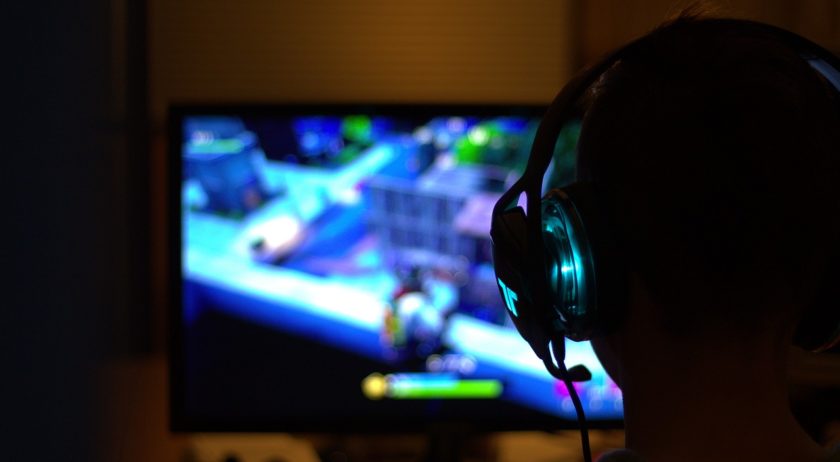Do you have a child who dreams of being a professional video gamer? You are not alone. Hundreds of thousands, if not millions, of kids dream of becoming a highly paid, famous, professional video gamer. They might even tell you that’s how Kyle Giersdorf (better known as Bugha), age 16, earned $3 million for winning the Fortnight World Cup, beating out 40 million other players who entered the online competition. And it’s not only Bugha who’s winning. If your kid is a gamer, he might already know about the recent League of Legends championship in which $2.225 million was distributed among the 24 final teams and about the millions of viewers of esports. By next year, esports viewership is projected to be more than 84 million, higher than the 79 million viewers of major league baseball and the 63 million viewers of NBA basketball. If you want to raise a professional gamer, remember that esports is more than playing the game.
The prospects of becoming a successful professional gamer are quite low. Current estimates suggest that 1 out of 10,000 gamers will make it to the level of earning his primary income as a professional gamer, lower than the odds of becoming a professional football player, which are 1 out of every 4500. However, given the increasing popularity of esports and opportunities afforded to lifestyle gamers on platforms such as YouTube and Twitch TV.com, there will be many more chances for aspiring gamers to earn an income. As with professional sports, the overwhelming majority of kids who want to become professional gamers are unlikely to be able to achieve this goal.
This presents many challenges for parents. Should you encourage your child to pursue his passion or not? Should you allow your child to explore it further, get a sense of what it takes to become a professional gamer? Is he even remotely realistic about his chances of a professional gaming career?
These types of questions are not unique to kids who want to become professional gamers. Many parents have struggled with similar questions for kids who want to become an artist, actor, or professional athlete. The odds of successfully doing any of these are quite low, yet at the same time, many kids who aspire to these types of activities may be building a set of skills that will help them to get jobs in the future. For example, artists may be well suited to doing graphic design on websites, actors to teaching drama in high school, or athletes to pursuing careers as a physical therapist or orthopedic surgeon. The same thing is clearly true for esports and video games. There has been an enormous growth in employment in the overall field of esports, including professional opportunities in management, teaching, coaching, marketing, and sports administration. There are an increasing number of esports teams, video-game companies, and other screen-based media areas where aspiring gamers might be able to transfer their skills into jobs for which they could have passion.
Beyond the practical thoughts of converting a passion for playing video games into a job, there are parenting issues to consider. Do you want your child spending all of his free time in front of a screen while ignoring other healthy activities? This isn’t unique to video gaming but can also be observed in some of the other passions taken up by teenagers, such as a child who loves to play basketball, has considerable talent, and is willing to practice for hours at a time. While the child may never have a real opportunity at a professional career in basketball, that passion and persistence may be redirected at something else in the future, and at the very least might build a lifelong interest in playing basketball and staying fit. Similarly, those aspiring actors, artists, musicians, and authors may never become a star of the screen or produce a bestseller but are often able to pursue these interests throughout their adult years, making their lives richer, not necessarily financially, but in their overall psychological health and happiness.
The connection that gamers make with their peers may help them to build lifelong friendships. The expertise they acquire as a result of their effort and engagement may build a sense of self-esteem and help them to recognize the connection between effort and success. The facility they have with games and technology may translate into knowledge of new technologies and help with jobs and their college education. It may also provide them with a source of relaxation and camaraderie.
But before you have your child go full tilt in his efforts to become a professional gamer, be sure to remind him that he should not put all of his eggs in one basket. For any kid with a passion, it’s still important to have a healthy and balanced play diet in which he spends time outdoors, engages in physical activity, gets together with his friends, and has time for unstructured and creative opportunities. Doing well in school must be a prerequisite for spending additional time in gameplay and should be insisted on by parents. Encouraging kids not to spend all their time playing one game but instead play a variety of games can also be important. With few exceptions, there is very strong evidence that most successful athletes and other professionals didn’t do just one thing and get really good at it, but typically started with a broader range of activities before settling on their passion. So if your kid aspires to be a professional gamer, insist that he do well in school, have some other interests, and is able to remain passionate about other things, as well.




